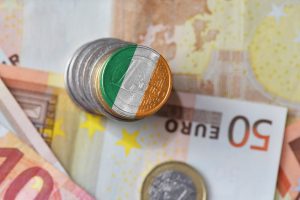Hoteliers not Budget happy

Although there was no reduction in excise tax, Ireland’s beer and spirits manufacturers found some blessings in the Budget.
The hike came into effect after last year’s Budget and IHF President Michael Lennon said the increase in VAT from 9% to 13.5% has seriously undermined Irish tourism’s international competitiveness and the ability of tourism enterprises such as hotels to re-invest in their business and local economy.
The impact is being felt on the ground by tourism businesses with 57% of hotels having seen a fall in overall business levels this year according to recent research by the IHF. The UK market is very challenging with 78% of hotels having seen a fall-off in business from Great Britain and 60% reporting a decrease in business from Northern Ireland.
Some 64% report that the drop in the value of Sterling has had a negative impact on business levels while 73% say they’re now re-examining investment plans and taking a more cautious approach for next year.
“Budget 2020 is heralded as a Budget for Brexit,” he stated, “Despite the serious challenges facing tourism, Government has failed to recognise the importance of competitiveness and its role in the ever increasing cost of doing business in Ireland. This is a missed opportunity to rebalance the tax take from tourism at a time when economic indicators provide significant warning of a change in outlook,” he said.
“Our industry has been one of the great success stories of the economy in recent years, supporting 270,000 jobs and promoting balanced regional growth across the country. It is therefore disappointing that the Government has failed to recognise the exceptional challenges now confronting tourism businesses. A rate of 9% VAT is the appropriate level for Ireland and would put us mid-range in a European context. This is what the Government should be looking at to ensure long-term sustainable growth of our industry.
“Ireland is already a very high-cost economy by international standards which adds to the challenges of an indigenous export industry and this is being made worse by the higher 13.5% VAT. We are now in a situation where we have a higher rate of tourism VAT than 27 European countries with which we compete. Add to this the challenges around Brexit and the 27% drop in the value of Sterling in recent years and you have a perfect storm.”
EII Scheme pleases
The spirits industry was somewhat more pleased with the Budget’s changes to the Employment and Investment Incentive Scheme.
Commenting on the changes introduced the Head of Drinks Ireland|Spirits Vincent McGovern, said, “Drinks Ireland|Spirits welcomes the announcement of changes to the EII scheme in Tuesday’s budget. These changes, which result in the full income tax relief being provided in the year of investment, the annual investment limit for the incentive being increased to €250,000 – and in particular providing for a new €500,000 annual investment limit for those investors who are prepared to invest in the scheme for 10 years or more, are welcome.
“Drinks Ireland|Spirits believes that these changes will help smaller distilleries as they recognise the fact that they are not the same as other small companies and that the practicalities of setting up a whiskey distillery are different.”
Beer production – excise relief ceiling raised
The beer industry too welcomed the raising of the excise production ceiling from 40,000 to 50,000 Hectolitres per annum in Budget 2020.
“This means that a microbrewer can get an excise rate relief of 50% if it produces less than 50,000 hectolitres of beer per annum, said Jonathan McDade, Head of Drinks Ireland|Beer, “This includes a ceiling of 30,000 hectolitres for domestic sale.
“This measure will assist microbreweries with ambitious expansion plans, particularly those looking to increase exports and could enable international beer consumers to enjoy more craft beer from the Irish market.”
However Alcohol Action Ireland regretted this extension of relief for microbreweries, describing the move as “regrettable”.
It had originally advised the Minister to begin the process of tapering the tax relief afforded to micro-breweries – both in terms of the qualifying hectolitre limits and the percentage reduction of alcohol product tax.
“By extending this relief (€5.8m: 2018) to further benefit an already buoyant alcohol industry is regrettable especially when public funds are so limited in alcohol treatment services,” it stated, claiming that, “Ireland’s alcohol consumption rate currently stands at 80% above global average”.








